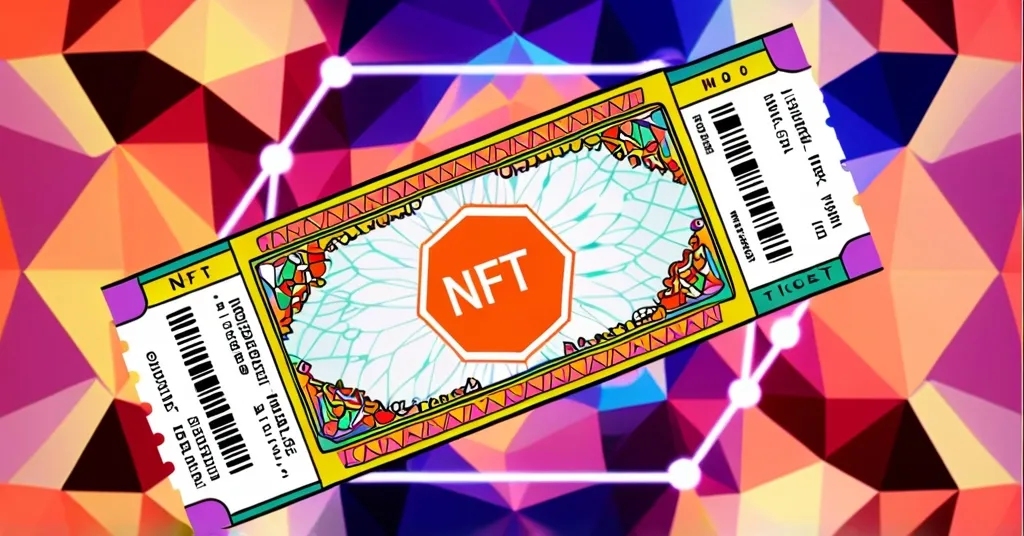Indian Railways Pioneers NFT Tickets for MahaKumbh Mela on Polygon Blockchain

Indian Railways Launches NFT Train Tickets for MahaKumbh Mela Pilgrims
Indian Railways is set to revolutionize the pilgrimage experience by introducing non-fungible token (NFT) train tickets for attendees of the MahaKumbh Mela, a sacred Hindu festival occurring once every 144 years. This initiative, announced in collaboration with Chaincode Consulting and the Indian Railway Catering and Tourism Corporation (IRCTC), leverages the Polygon blockchain to offer a digital-first experience for millions of pilgrims globally.
- NFT train tickets for MahaKumbh Mela
- Utilizing Polygon blockchain for scalability and low costs
- Accessible through NFTrace platform
The MahaKumbh Mela, recognized by UNESCO as an Intangible Cultural Heritage of Humanity, is expected to draw over 450 million pilgrims in 2025, including notable figures like Richard Gere and the Dalai Lama. This event represents a significant intersection of spirituality and technology, as Indian Railways aims to enhance the spiritual journey through the use of NFTs. Alok Gupta, CEO of Chaincode Consulting, emphasized the initiative’s goal, stating, “By partnering with IRCTC and leveraging the Polygon blockchain, we are enabling a digital-first experience that complements the spiritual and traditional significance of the Mahakumbh while introducing a new level of engagement through NFTs.”
NFTs, or non-fungible tokens, are unique digital certificates that can represent ownership of specific items or experiences. In this case, they will serve as train tickets for the MahaKumbh Mela, minted on the Polygon blockchain. Polygon was chosen for its ability to handle many transactions quickly (scalability) and for its low transaction costs, making it an ideal platform for this large-scale event. These digital pilgrimage tickets will be accessible through the NFTrace platform, which specializes in real-world assets and traceability, ensuring that pilgrims can easily verify and access their tickets.
Indian Railways has previously experimented with NFT-based tickets during the Holi festival in March 2024, paving the way for this larger initiative. The Hyperledger blockchain will be used alongside Polygon for maintaining records of ticket purchases, adding an extra layer of security and transparency to the system.
While this move represents a step forward in digital innovation, it comes amidst India’s complex stance on cryptocurrencies. In 2022, the government imposed a 30% tax on income from cryptocurrencies and a 1% Tax Deducted at Source (TDS) on transactions over ₹10,000 annually. These policies have created liquidity issues in the crypto market, with global exchange Bybit temporarily halting trading services in India due to evolving regulations. India’s crypto tax policies are a sledgehammer to the market’s liquidity, and they could potentially impact the adoption and success of the NFT ticketing system. However, the country’s efforts during its 2023 G20 presidency to achieve a global consensus on crypto policies suggest a nuanced approach to balancing innovation and regulation.
On a global scale, other countries are also exploring blockchain technology for various applications, including travel and pilgrimage. India’s initiative with NFT train tickets for the MahaKumbh Mela positions the country as a leader in this emerging trend, showcasing its potential to influence global conversations on blockchain technology.
As we embrace this bold step at the intersection of spirituality and tech, it’s worth asking: Are we ready for a future where even our tickets to the divine are digital? The answer lies in how well we can blend tradition with innovation, ensuring that the essence of such sacred events remains intact while embracing the benefits of modern technology.
Key Takeaways and Questions
- What is the purpose of introducing NFT train tickets for the MahaKumbh Mela?
The purpose is to digitize the spiritual journey of pilgrims, enhance global participation, and celebrate India’s cultural heritage using blockchain technology.
- How does the use of the Polygon blockchain benefit the NFT ticketing system?
The Polygon blockchain offers scalability, speed, and low transaction costs, making it an efficient platform for minting and managing NFT train tickets.
- What platform will be used to access the NFT train tickets?
The NFT tickets will be accessible through the NFTrace platform, which specializes in real-world assets and traceability.
- What is the significance of the MahaKumbh Mela?
The MahaKumbh Mela is a major Hindu festival and pilgrimage held once every 144 years, attracting millions of pilgrims from around the world, and it underscores India’s rich cultural heritage.
- What are the current cryptocurrency tax policies in India?
India imposed a 30% tax on all income from cryptocurrencies and a 1% Tax Deducted at Source (TDS) on transactions exceeding ₹10,000 annually, effective from July 1, 2022.
- How has India’s stance on cryptocurrencies affected the market?
The strict crypto taxes and regulatory developments have led to liquidity issues in the market, with global exchange Bybit temporarily halting trading services in India.
- What role did India play in global crypto policy during its G20 presidency?
India aimed to achieve a global consensus on framing crypto policies and successfully obtained agreement from all G20 members on global guidelines during its 2023 presidency.

